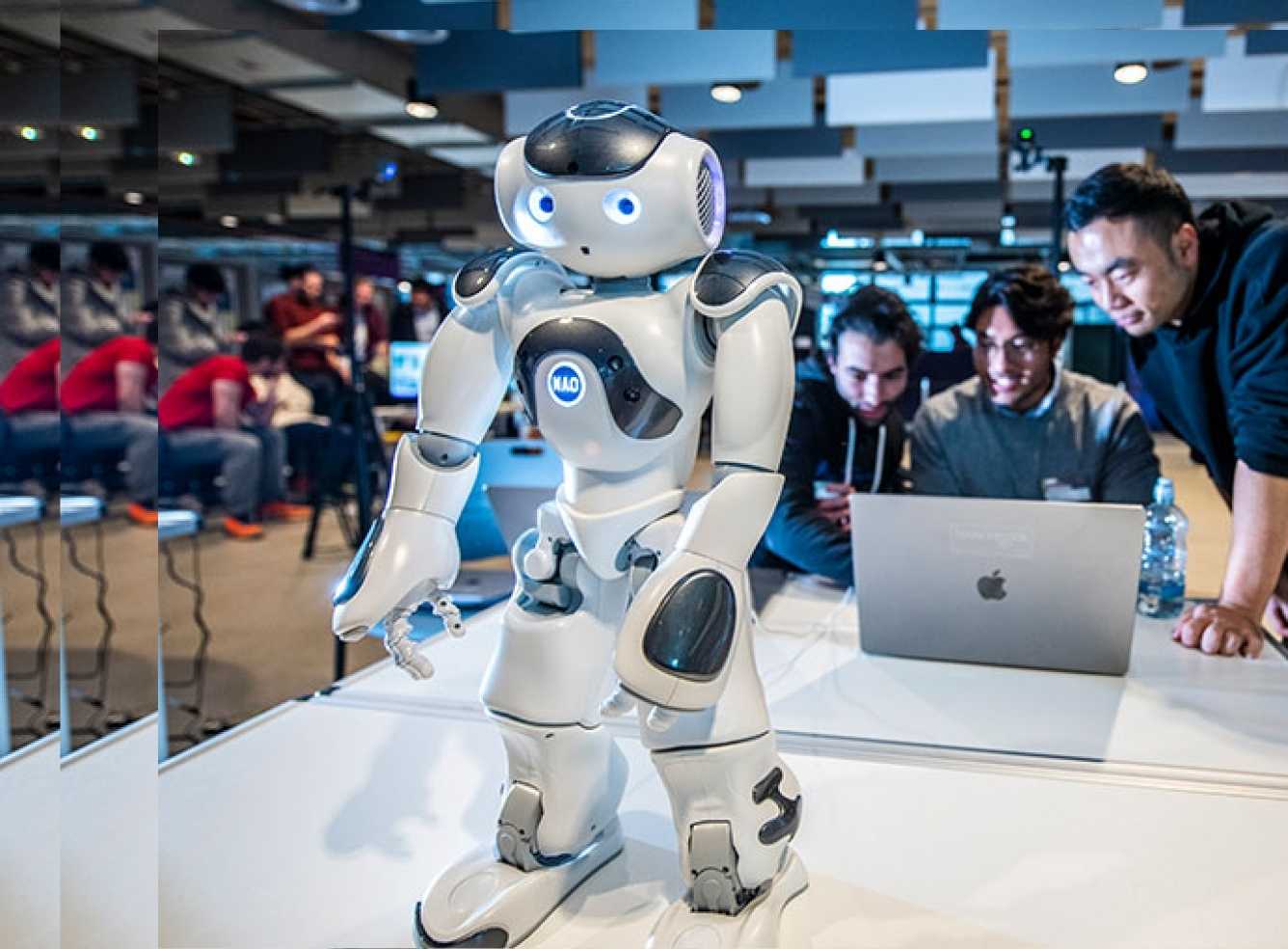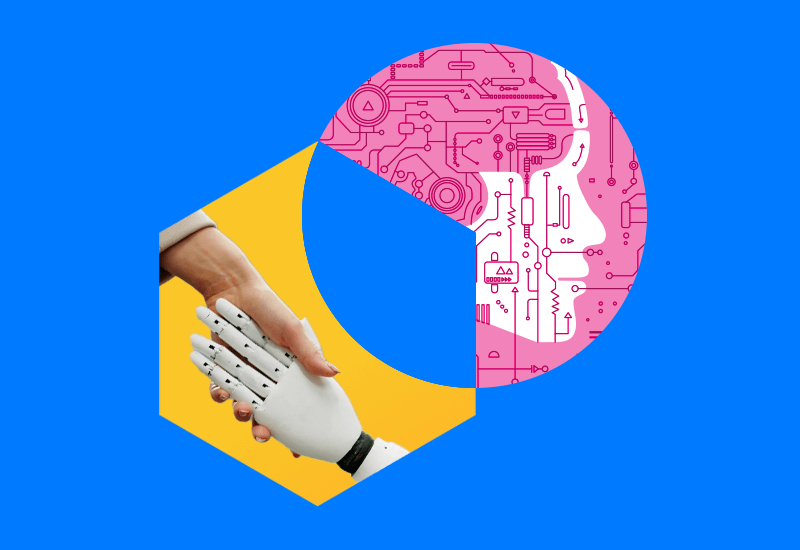Explore the mechanisms, implications and ethics of AI
This course, led by Dr Iliada Eleftheriou, will demystify AI, explaining how it works and its limitations.
Artificial intelligence (AI), the ability of machines to learn from data, make decisions and perform actions, is now creeping into every aspect of our lives. This unit explores an environment where AI plays an increasingly important role.
Designed specifically for online learning offering a unique interactive experience.
This unit is accessible to undergraduate students from all disciplines, no prior knowledge of AI is assumed.
About
What sort of problems can AI realistically be expected to help with?
If you are interested in the ways in which AI impacts on society, but have not had the opportunity to study it, this is the unit for you.
- We will consider the science behind the headlines to help you develop an informed opinion regarding the complexities of the use of AI in society.
- We will discuss the conceptual frameworks behind AI methodologies and the sources of the data on which they operate.
- We will provide an introduction to computational thinking. What sort of problems can AI realistically be expected to help with?
- There will be an in depth analysis of a series of case studies highlighting the use of AI in work and society.
- You will work alongside students from a wide range of disciplines, to understand the benefits and opportunities AI offers now, and how this might change in the future.

Unit details
What should I know about this unit?
Course Unit Code
UCIL20122
Course Unit Details
This unit has been designed specifically for online learning and offers a unique interactive experience.
- Level 2
- 10 Credits
- Department of Computer Science and School of Health Sciences
This unit will demystify AI, explaining how it works, and demonstrating its limitations. Its overarching aim is to equip Manchester graduates from all disciplines with an understanding of the impact this technology currently has, the way this is likely to change in the future and, crucially, the ability to grasp the opportunities it brings, whatever your chosen career.
On successful completion of the unit, you will be able to:
- Describe and review the basic concepts underlying AI and Machine Learning
- Identify and debate the impact of AI on society both now and in the future, and from diverse, interdisciplinary and non-technical viewpoints
- Employ computational thinking approaches to formulate a problem in such a way that a computer can tackle it
- Critically evaluate AI applications in an innovative and socially responsible way towards ensuring that technology is used in the future to improve the way we work and live
- Collaborate within a team to analyse and evaluate a case study
Examples of topics covered:
- Can you get a machine to learn? Finding out what AI can do (and more importantly, what it can't do)
- Can AI help your business grow? Using big data to target your ecommerce activity
- Do humans or machines make better drivers? The importance of 'systems thinking' in the human-technology relationship
- What is the impact of AI on our legal system? Can robots make fair and ethical decisions?
- Can robots care? The use of robots in social care
This online unit, delivered via Canvas, is made up of online modules that are released at intervals. The unit is highly interactive and adopts a blend of approaches, including video inputs and case studies.
The learning takes place via:
- Online modules in Canvas
- Introductory face-to-face session
- Optional weekly drop-in session
- Essay (50%)
- Group case studies (30%)
- Project (20%)
- Iliada Eleftheriou
- Caroline Jay
- Andy Brass
- Ajmal Mubarik
UCIL units are designed to be accessible to undergraduate students from all disciplines.
UCIL units are credit-bearing and it is not possible to audit UCIL units or take them for additional/extra credits. You must enrol following the standard procedure for your School when adding units outside of your home School.
If you are not sure if you are able to enrol on UCIL units you should contact your School Undergraduate office. You may wish to contact your programme director if your programme does not currently allow you to take a UCIL unit.
You can also contact the UCIL office if you have any questions.
How to enrol
UCIL units are designed to be accessible to undergraduate students from all disciplines. Depending on your School enrolment can be completed in one of two ways:
Enrolment using the Course Selection System
You may be able to enrol directly onto a UCIL unit using the Course Unit Enrolment System.
Enrolment via your School
If you cannot see the UCIL unit you wish to study or it is blocked out on the Course Unit Enrolment System you may need to request approval to study the unit directly from your School.
Please get in touch with the UCIL team at ucil@manchester.ac.uk if you have any questions.
Feedback
I liked that it explores the social implications of AI and the technical hurdles in its development. I was also happy to find that even though the unit allows students to experiment with a real AI algorithm, it wasn't too complex for me (a first year humanities student) to keep up.
Timothy Hughes
Humanities Student


